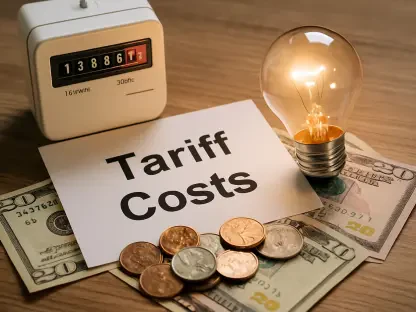As the internet continues to evolve, the world of investing has become more accessible, drawing Singaporean investors toward diverse markets across the globe. Online trading platforms not approved by the Monetary Authority of Singapore (MAS) have emerged as enticing alternatives, promising potentially lucrative returns. Yet, these appealing opportunities often bring substantial risks, largely due to the absence of local regulatory safeguards. This article delves into the inherent dangers of engaging with such non-MAS-approved platforms and offers practical guidance for individuals seeking to safeguard their investments and personal information.
The Allure and Risks of Non-Approved Trading Options
Perceived Opportunities in Overseas Markets
Singaporean investors are increasingly captivated by the allure of overseas investment options, which present themselves as gateway opportunities to high returns. Yet, beneath this attractive veneer lies a plethora of risks from operating outside regulated environments. Many investors are lured by the idea of diversification and the promise of gains in foreign markets, but the pitfalls can be substantial. If a deal goes awry with these unregulated entities, recovering losses can prove nearly impossible. The complexity of international legal proceedings often deters investors from pursuing their lost funds, especially when companies lack a physical presence or transparency.
In recent years, the Monetary Authority of Singapore, in collaboration with local law enforcement, has identified and blocked several unauthorized trading platforms that were illegally offering services to Singaporean clients. These platforms—including well-known names like Octa and XM—were circumventing the regulatory framework by offering speculative trades in various financial instruments without requisite approvals. The companies running these platforms are often registered in jurisdictions like Comoros, Mauritius, and Belize, which offer little in terms of investor protection and transparency.
Risks of Operating Outside Regulatory Oversight
The core issue with engaging non-MAS-approved platforms is the lack of oversight and protection, which leaves investors vulnerable. The absence of MAS approval signifies that these platforms operate outside Singapore’s rigorous regulatory standards. Without the backing of local regulators, investors are deprived of legal protections such as insured deposits and recourse in case of malfeasance. A notable example is the downfall of a Canadian oil company, which promised large returns only to leave investors in dire straits following its insolvency. This serves as a cautionary tale of how guarantees are only as reliable as the company providing them.
The operational tactics of non-approved platforms further endanger investors. By extending high-risk loans for speculative trading and other leveraged activities, these entities entice uninformed investors into precarious financial positions. Clients often find themselves in a quandary when trades fail, with additional loan repayments exacerbating their financial woes. The aftermath can include severe personal financial loss, with no regulatory body to turn to for assistance or restitution. Thus, while the potential for rewards exists, the risks towering over these opportunities frequently overshadow the prospects of high returns.
Safeguarding Investments with Regulatory Vigilance
The Importance of Regulatory Adherence
Trading on regulated platforms ensures a higher level of security thanks to stringent MAS requirements. By trusting MAS-approved entities, investors can sidestep the pitfalls associated with non-compliant companies. Singapore is home to an impressive number of nearly 2,000 licensed capital markets entities, which provide ample opportunity for secure investments. Engaging with unapproved foreign platforms is not illegal per se, but it compromises the rights and protections available to investors within a regulated system.
In addition to financial security, adherence to regulatory requirements guards against unauthorized access to sensitive personal information. Engaging with unverified platforms risks exposure of financial details to malicious entities. The proliferation of data breaches emphasizes the necessity of caution when sharing personal financial information. With non-sanctioned platforms, card details used for transactions become easy targets for misuse, opening the door to potential identity fraud and theft.
Legal Recourse and Investor Protection
When dealing with defrauded investments, legal recourse is complex and often ineffective against non-MAS entities. While investors may attempt lawsuits, such as class actions, the success rate remains low due to challenges in proving wrongdoing within legal frameworks. This was evidenced in the failed attempt to gain compensation from marketing agents linked to the Canadian oil debacle, ultimately highlighting the difficulties in litigating against collapsed international businesses. The arduous process of legal recovery underscores the benefits of investing through MAS-regulated avenues.
Investors can minimize risks by remaining vigilant, conducting thorough research, and seeking expert advice before committing to any platform. Due diligence and cautious evaluation can prevent significant financial harm. Utilizing platforms backed by local laws not only secures investments but adds a layer of accountability, enhancing protection. Discerning investors should prioritize transparency and legitimacy, harnessing domestic resources to ensure their investment strategies are backed by robust protective measures.
Vigilance and Prudence: The Path Forward for Investors
As the internet continues to develop, it has significantly broadened the horizons for investors, especially those in Singapore. The allure of global markets has drawn Singaporean investors to explore various possibilities. The rise of online trading platforms not sanctioned by the Monetary Authority of Singapore (MAS) is particularly appealing, with promises of potentially high returns. However, these platforms carry considerable risks, primarily because they lack the protective regulatory frameworks that MAS-approved options provide. This poses a threat to the safety of investments and personal data. Our analysis uncovers the dangers associated with these non-MAS-approved trading platforms and provides essential strategies for investors aiming to protect both their financial assets and private information. From verifying the legitimacy of platforms to understanding the security measures in place, investors need to be vigilant and informed to navigate these enticing yet risky opportunities wisely.









